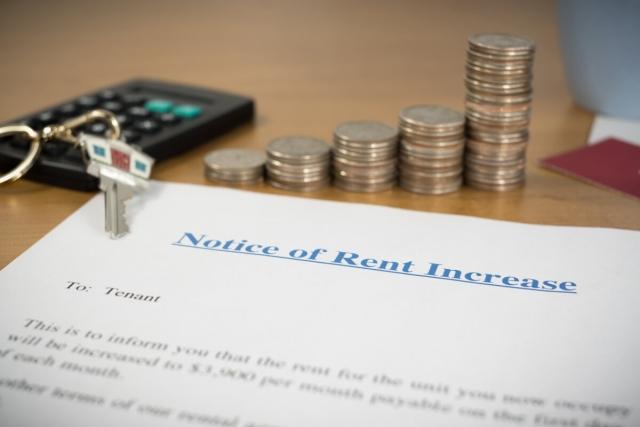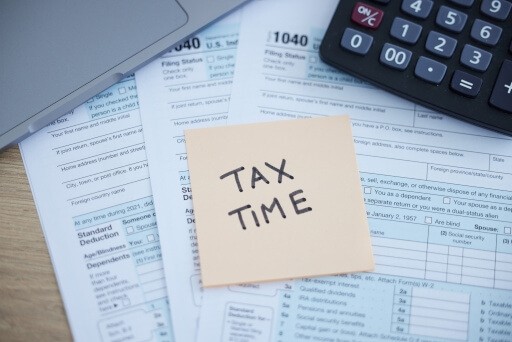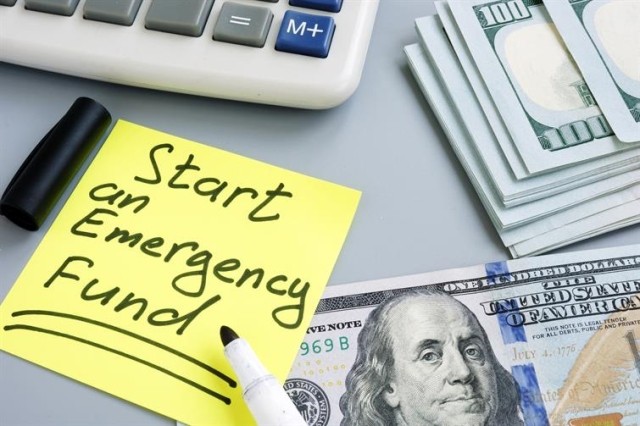
There’s an art to striking the right balance between making a profit from your rental property and keeping your property leased. Some landlords may charge less than any other rental in the area and rarely raise the rent. These landlords will likely have less tenant turnover, but they won’t be making any money from their rental, either. However, if a landlord decides on a rent increase to renew, they may find that the current tenant doesn’t want to pay the extra money to renew and instead chooses to find a new rental. If you’re struggling with the concept of increasing rental rates every year, we’re here to help you hone your art.
- The benefits of raising the rent every year
- How to determine the percentage of a yearly rent increase
- Get your rent comp report for free
- Why yearly rent increases are necessary
- Reasons you cannot raise the rent
- What you should do if you decide to raise rent
The Benefits to Raising the Rent Every Year
When the expenses for owning a property increase, raising the rent is necessary to maintain the bottom line in your rental business. These include expenses that you have no control over, such as:
- Property taxes
- HOA fees
- Mortgage payments with an ARM
- Utilities
- Landlord insurance
- Property management fees
There are also expenses that you have some control over but will still cost you each year:
- Maintenance (lawn care, pest control, gutter cleaning, etc.)
- Repairs (appliance repair or replacement, plumbing issues, tree removal, etc.)
- Vacancies
If you choose not to raise the rent when your expenses rise each year, you will be making less profit on your rental property. If the thought of raising the rent at lease renewal time makes you uneasy, run the numbers to determine whether you must increase rent to maintain a steady, positive cash flow from your rental business.
How to Determine the Percentage of a Yearly Rent Increase
In most cases, you’ll find that a three to five percent increase is the annual average rent increase for a rental property. However, research your specific location each year to determine the average rent increase for properties of similar value to your own. Be sure to check your local and state laws as well to see if there are any regulations you should be aware of. Most renters expect a slight yearly increase in rent when it comes time to renew the lease. If you charge $1,000 per month in rent, and you give your tenant a lease renewal letter with a $200 per month increase to renew, it’s very likely that your tenant will choose to move out and not re-sign. That would be a 20 percent raise to your tenant’s rent. Not only will this deter your tenants from renewing, but the rental increase may break your local laws. If you instead offer a $30 to $50 increase in rent per month to renew, your tenant will be more likely to agree and re-sign.
Get Your Rent Comp Report for Free
When you list your rental on Apartments.com, we provide you with free rent comparison reports. This valuable information gives you a clear understanding of the market so you can price your rental right, compare your property’s value to other similar properties, and review market conditions like the average days on the market and the average rent rates. This information can be especially helpful when it's time to determine if you need to increase the rent.
Why Yearly Rent Increases Are Necessary
It’s important to know comparable rental rates for your area so you can feel confident that you are offering a fair price for rent that will allow you to find good tenants while maintaining a profitable rental business. There are reasons for rent increases. It’s much easier for renters to pay a slight rent increase each year than a major rent increase later on that’s based on years of undercharging for rent. Yearly rent increases, averaging between three and five percent, will keep your rental on par with your competition and benefit you as a landlord in the long run. If you’re interested in increasing your rental income even more over time, consider renovating your rental property to attract even more renters to your listing.
Reasons You Cannot Raise the Rent
There are legal limits on rent increases, like if your rental property is rent controlled, or if your jurisdiction has a statute limiting rent increases, you must comply with the law. Rent control laws regulate rent increasing, so you may not be able to raise the rent at a yearly percentage, or at all. You also can’t raise the rent on a fixed-term lease during the lease term. If your lease is based on a one-year period, you can’t raise the rent after six months. You must wait until it’s time to send the lease renewal letter to raise the rent. You can raise rent with month-to-month tenancies, but you must give proper notice per your state laws before raising the rent. This is typically 30 days but check your local laws first.
If you don’t want to raise the rent
If you have a great tenant renting your property and you don’t want to risk losing them and finding a new tenant, you can choose not to raise the rent. In the meantime, you could increase your income by adding additional fees such as pet rent, offering upgrades like valet trash, or providing a furnished rental to charge a higher price. However, as soon as the tenant chooses to move out of your property, consider charging the market rate for your rental property to make sure you’re not shorting your profit going forward.
What You Should Do if You Decide to Raise Rent
If you decide to raise the rent, then make sure that it is a reasonable amount. You also need to give ample notice by sending a rent increase notice at least 60 days before the lease expires. You should include justification, the new rent amount, and inform your renters of their rights.
FAQ
How much can I increase my rent?
Depending on laws and regulations, there can be a limit to how much you can increase the rent. Be sure to check your state’s laws and regulations regarding rent increases. In addition, you must think about additional considerations such as tenant renewal.
What is the average rent increase per year?
The percentage landlords can raise rent varies on state laws, but it is typically a three to five percent increase.
Can a landlord raise the rent mid-lease?
Landlords cannot raise the rent on a fixed-term lease during the lease term. This means a lease is based upon a one-year period, a landlord can’t raise the rent after four months. Landlords raising the rent on a month-to-month lease is a bit of a different story as they can do so but proper notice per state laws must be given. In most cases, this is 30 days but check the local laws first.
This article was originally published on June 25, 2020.











